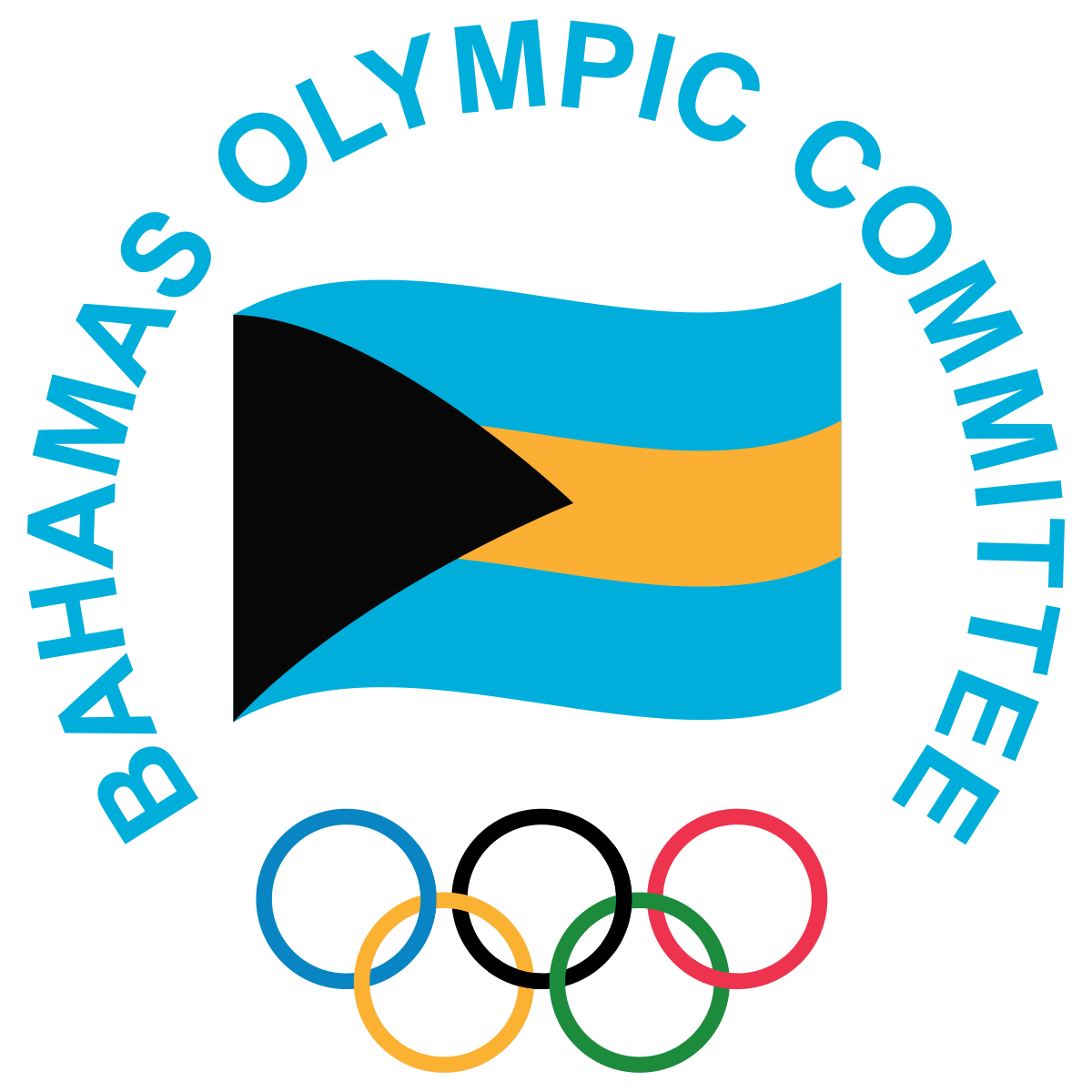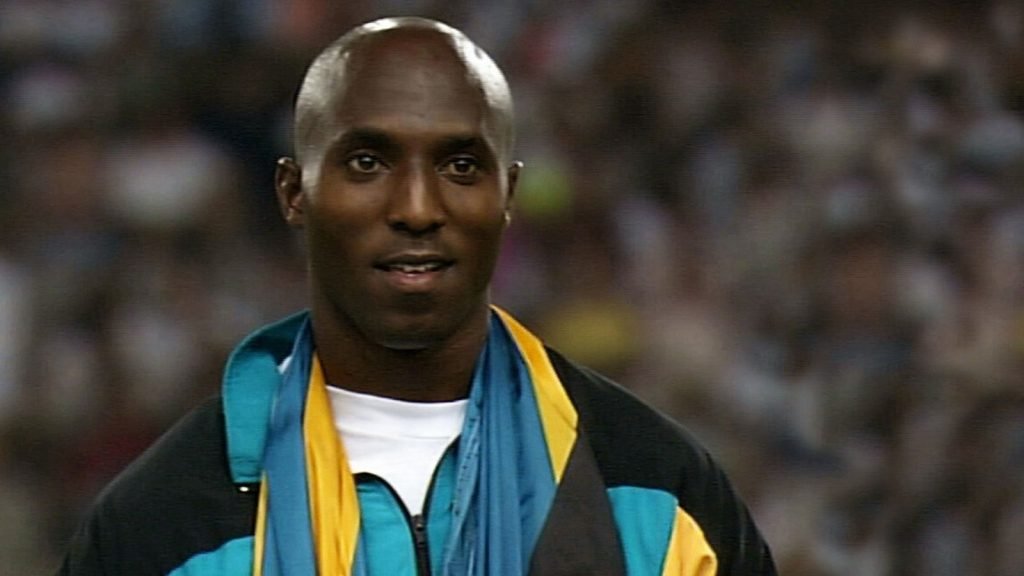BAHAMAS OLYMPIC
LEGENDS
Extraordinary results could only be achieved by extraordinary athletes.
In the realm of sports, The Bahamas has always punched well above its weight. This tiny country’s sporting prowess comes into full display on the Olympic stage. With a total of 13 medals in its competitive history, this island nation has worn the crown of Olympic winner per capita on more than one occasion.
Over 60 years of Olympic competition, The Bahamas has landed in first place per capita three times, never with a population of more than 380,000 people. The per capita title, by weighted-medal points, was proudly held after the Games in Sydney, Athens and Tokyo ‘64. On several occasions, the first place mark was narrowly missed, landing the country in the second (Rio, London ‘12, Atlanta, Melbourne) or third (Beijing) place spot.
Such extraordinary results could only be achieved by extraordinary athletes. The very best and most notable of these athletes have become legends – men and women who have performed exemplarily on the field of play and in life.
Sir Durward Knowles
A lone gold medal in the 1964 Games marked the first per capita win for The Bahamas. This was nine years before the Bahamas would see its independence, but the occasion still is a source of pride for citizens. For a country known for its aquamarine seas, the gold came in a fitting event – sailing.
Although the feat may have shocked many, it was something that captain of the star-class vessel always thought possible. Sir Durward had already set the stage for such a victory in the 1956 Games in Melbourne, when he and crewman, Sloane Farrington, brought home the bronze in the event. Then, in Tokyo in 1964, he and crewman, Cecil Cooke, would not be denied the gold.
Known as the Sea Wolf, Sir Durward began sailing in 1936, and represented The Bahamas in seven consecutive Olympics (1948 – 1972). He competed in his eighth and final Olympics in Seoul in 1988.
Despite so many accomplishments in sports, Sir Durward was just as well known for his philanthropy work throughout The Bahamas, and for his Herculean efforts in calling the country to unity. In addition, he was celebrated around the world as the oldest Olympic gold medalist until the time of his death in 2018 at the age of 100.
frank rutherford
It was 1992 – 19 years into an independent Bahamas – when The Bahamas won its first medal as an Independent country. It came on the legs of triple jumper, Frank Rutherford. His leap of 17.36m lifted him to the podium with a bronze medal, and landed him among Bahamian sports legends.
Rutherford’s bronze medal performance was an encore to his 1987 IAAF World Indoor Championships feat. At those Championships, he accomplished another first for The Bahamas, winning the country’s first World Championships medal – bronze.
Throughout his career, Rutherford has proven to be an exceptional athlete, still holding the triple jump record he set at the University of House in 1987. However, off the field of play, he continues to be an inspiration as well. His Frank Rutherford Foundation, based in Houston, Texas, helps Bahamian athletes through university. He has assisted countless athletes in obtaining a college education through opportunities as basketball and American football players.
Women’s 4x100 Team
Their exploits began with a silver medal in Atlanta. Since then, however, this team of runners struck gold in a string of competitions, earning them the title – the Golden Girls.
The team of Pauline Davis-Thompson, Debbie Ferguson-McKenzie, Eldece Clarke, Sevatheda Fynes, and Chandra Sturrup is among the most successful Olympic groups in Bahamian history. The cohesive unit worked together over many years, representing The Bahamas in the 4x100 meters in two consecutive Olympics.
After being edged out by the US team in 1996, the team captured gold in Sydney in 2000. This came on the heels of gold in the 1999 World Championships in Seville.
Pauline Davis-Thompson
While seen as the natural leader of the Golden Girls that dominated the 4x100m in the late 90s and into 2000, Pauline Davis was racking up individual medals as well. In a career that spanned almost two decades, Davis-Thompson seemed only to get better over time, with her crowning achievements coming in her final races.
In her fifth consecutive Olympic Games, Davis-Thompson hauled in double-gold. The first came in the 200m, when she captured The Bahamas’ first gold medal in the era of Independence. With it, she became the first person to win an individual gold medal for The Bahamas. Soon after, she ran the third leg of the 4x100m to cap off her career with another gold with The Bahamas’ Golden Girls.
After retiring from competition, Davis-Thompson served for 12 years as an IAAF Council member. At the end of her service, she was named Honorary Life Person Member. Throughout her career, she has assisted in the training and development of young athletes.
Thomas A. Robinson
Although he never medaled in the Olympic Games, Thomas Augustus Robinson is a legendary Olympian. He was known as a trailblazer in sports and in volunteerism.
As a pioneer in athletics, Robinson accomplished many firsts. He was the first Bahamian to compete in an Olympic Games in Melbourne, 1956; the first Bahamian track athlete to advance to an Olympic finals; and the first Bahamian to capture track and field world records.
Robinson was also a notable collegiate athlete, winning nine championships while at the University of Michigan from 1957 to 1962. He competed in his last Olympic Games in 1968.
Many Bahamian athletes have achieved greatness under Robinson’s mentorship. For his extraordinary accomplishments in sports, and for his civic contributions, The Bahamas’ national stadium is named in honor of Thomas A. Robinson.







